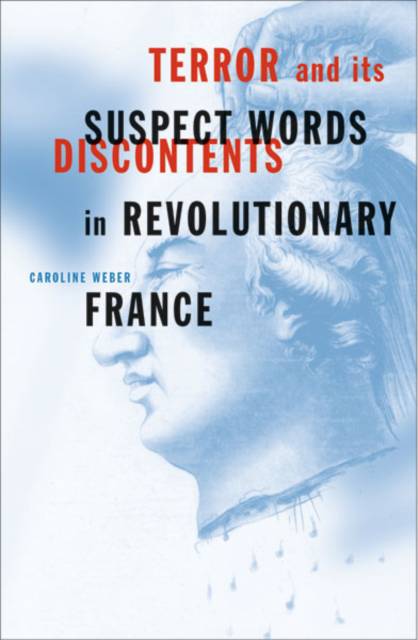
- Retrait gratuit dans votre magasin Club
- 7.000.000 titres dans notre catalogue
- Payer en toute sécurité
- Toujours un magasin près de chez vous
- Retrait gratuit dans votre magasin Club
- 7.000.0000 titres dans notre catalogue
- Payer en toute sécurité
- Toujours un magasin près de chez vous
Terror and Its Discontents
Suspect Words in Revolutionary France
Caroline Weber
Livre broché | Anglais
30,95 €
+ 61 points
Description
Camille Desmoulins, a journalist writing under the Montagnard regime of 1793-94, remarked that France's government had replaced "the language of democracy" with "the cold poison of fear, which paralyzed thought in the bottom of people's souls, and prevented it from pouring forth at the tribunal, or in writing." How this happened, how the Reign of Terror reached even into the realms of thought and language, is the subject of Caroline Weber's book, a revealing look into the paradoxical embargo on free expression that underpinned the Robespierrists' self-proclaimed "despotism of liberty" during the French Revolution. Weber examines Jean-Jacques Rousseau's and the Robespierrists' articulation of a series of initiatives designed to curtail and control the dissemination of alternative political and philosophical messages in the republic. Here Weber underscores the internal contradictions and limitations of an enterprise that promised universal freedom while oppressing particularism, and that railed against the very language that it was compelled to adopt as a principal political tool. The book then focuses on two eloquent contemporary critics of this phenomenon, Desmoulins and the Marquis de Sade, the infamous libertine author. Weber demonstrates how Desmoulins reconfigured the Montagnard regime's rhetoric to conjure up a political system based on tolerance, not terror, and how Sade deftly parodied the Robespierrists' brutality and hypocrisy, proposing a republic based on the ruthless elimination of dissident voices and on the unabashed celebration of despotism and bloodshed. A balanced account of how the "discourse of totality" actually restricted particular freedoms in the wake of theFrench Revolution, this book provides a highly original--and timely--exposition of the political uses of rhetoric and of the links between language and power.
Spécifications
Parties prenantes
- Auteur(s) :
- Editeur:
Contenu
- Nombre de pages :
- 320
- Langue:
- Anglais
Caractéristiques
- EAN:
- 9780816638871
- Date de parution :
- 13-01-03
- Format:
- Livre broché
- Format numérique:
- Trade paperback (VS)
- Dimensions :
- 149 mm x 229 mm
- Poids :
- 426 g

Les avis
Nous publions uniquement les avis qui respectent les conditions requises. Consultez nos conditions pour les avis.






